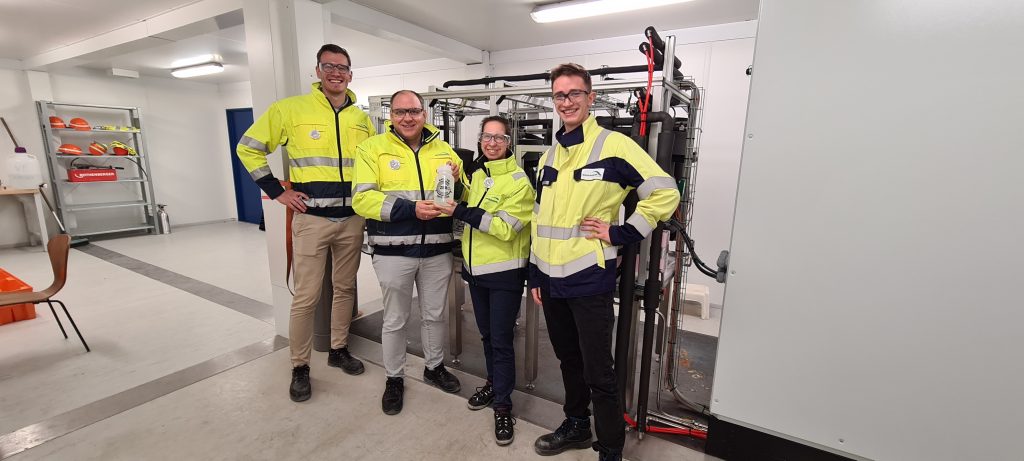Net Zero Emission Labs is partner in the Joint Research project H2-Reallabor Burghausen
The overarching goal of the „H2-Reallabor Burghausen – ChemDelta Bavaria“ project (H2 stands for hydrogen) is the transformation of the chemical industry towards sustainable hydrogen-based chemistry. This transformation is absolutely necessary in order to achieve Germany’s climate and energy policy goals, but also to maintain prosperity in the region. In this 4-year joint project (April 2023 – March 2027), 35 partners from industry and science have joined forces. The project is funded by the Federal Ministry of Education and Science with 50 Mio €. The project is intended to act as a „lighthouse project“ for the entire chemical industry in Germany on the way to a climate-neutral hydrogen economy.
Rohrdorfer Net Zero Emission Labs GmbH, acts as a research partner of the joint H2-Reallabor Burghausen project, taking over Work Package 6 “ CO2 Direct Electrolysis to Green Ethylene (CODE)”. The aim of work package 6 is the comprehensive and sustainable use of CO2 from cement waste gas for the synthesis of green Ethylene based on a new type of CO2 Direct Electrolysis (CODE). At the end of the project, proof of technical feasibility for the overall process is to be provided in a demonstrator / pilot unit with a turnover of several kilograms per day that will be erected at Rohrdorf site.
This innovative and synergetic process will create a regional and comprehensive value chain, from the reduction of unavoidable CO2 emissions from the Rohrdorf cement plant, to the development of an energy-efficient, direct electrosynthesis of green Ethylene, to the utilization of this now non-fossil raw material for the chemical industry at the Burghausen site.
This decarbonization pathway offers all partners involved high added value and at the same time represents an ecologically sensible use of renewable energy, as the carbon is fixed in the long term by further processing the sustainably produced ethylene into polymers, resins, functional building blocks, plastics and composites.




